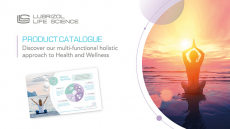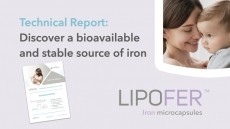EFSA approves calcium, magnesium and zinc forms in food supplements
After a request from the European Commission, EFSA’s Panel on Food Additives and Nutrient Sources added to Food (ANS) found the sources of calcium, magnesium, zinc and vitamin C presented no safety issues at typical doses across the 27-member state EU bloc.
ANS noted several calcium, magnesium and zinc salts are approved as sources of minerals in foods for specific nutritional purposes and calcium ascorbate is an approved food additive and an approved source of vitamin C in food supplements and in foods for specific nutritional purposes.
Its only qualm was in regard to zinc. It noted that “when dietary intake is taken into consideration, in the case of food supplements providing 66.5 mg zinc ascorbate or above, the Tolerable Upper Intake Level (TIUL) for zinc established by the SCF will be exceeded.”
But it was a minor concern.
Previously found to be safe
In its opinion, ANS noted EFSA’s precursor, the Scientific Committee on Food (SCF) had evaluated calcium ascorbate (E 302) as a food additive in 1989 and EFSA itself had evaluated it as a vitamin C source in 2004.
SCF had established TIUL for magnesium and zinc in 2001 and 2003 and therefore no further toxicological evaluations of calcium ascorbate, magnesium ascorbate and zinc ascorbate were required for the current evaluation.
The suggested intake levels of 1500mg of calcium ascorbate per person per day were within established limits of 2500mg.
Similarly, levels of 1120.8 for magnesium ascorbate were well within a TIUL of 2500mg/person/day.
ANS stated: “This TIUL refers to supplemental magnesium, taken in addition to magnesium present in normal food and beverages, and holds for adults including pregnant and lactating women and children from four years on. The additional exposure to vitamin C of users of magnesium ascorbate is at a level not associated with adverse gastrointestinal effects.”
For zinc ascorbate, only those above the 97.5th percentile of all adults and children of all ages would exceed the TIUL.
ANS added: “The Panel notes that the exposure to vitamin C from all the three sources at the use and use levels proposed by the petitioners will be 2283mg/person/day. This amount may be associated with an increased risk of adverse gastrointestinal effects. The acute gastrointestinal effects may occur at higher intakes (3-4 g/person/day).”
It therefore concluded there were no safety concerns at usual intakes.
The dossiers on magnesium and zinc were submitted by Natuur- & gezondheids Producten in the Netherlands. The calcium dossier was submitted by supplements manfacturer Solgar in the UK.










